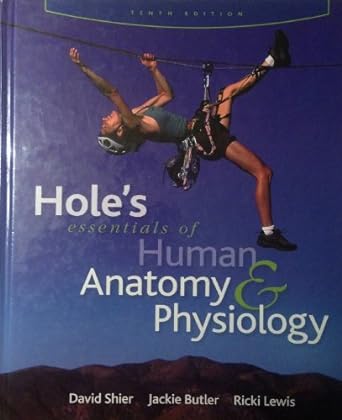
To continue science studies after basic biology, join this in-depth and complete study of human anatomy and physiology covering the basic principles of human biology and its functions. This is an especially good course for students considering medical / health fields after high school.
How to get the most out of Anatomy & Physiology, Part One with Victoria Cerise:
-
First, read the course materials below before the first class meeting.
-
Then have a notebook ready and available for class notes each live session.
-
Read Chapter(s) before the class meeting.
- Write the vocabulary terms in your notebook.
-
Watch that week’s recording if you need to revisit information from our live session.
-
Complete the online computer-graded quiz.
-
Once the course is completed to the parent's and professor’s satisfaction, there is a Certificate of Completion at the end to be filled in for your records.
Special Notes: This course starts before Labor Day. This is Part One of a two-part course. Students are expected to sign up separately for Part Two in the Spring.
Total Classes: 14
Duration per class: 60 to 75 minutes
Prerequisite: One year of high school biology
Suggested Grade Level: 10th to 12th grade
Instructor: Victoria Cerise, BSN
Instructor Email: victoriacerisehsc@gmail.com
Course Description: This course offers an in-depth study of human anatomy and physiology with a complete study of the basic principles of human biology and its functions. Where appropriate, discussion of contemporary bioethical issues from the perspective of the Church’s moral magisterium will be engaged. The lab component will focus in depth on the organ systems of the body, their anatomy, and physiology. These include the sensory, motor, and integrative systems, special organs of sense, endocrine, cardiovascular, respiratory, lymphatic, urinary, digestive, reproductive systems, as well as embryonic and fetal development. A special emphasis will be placed on the human identity and status of the embryo and fetus, incorporating a scientifically-sound pro-life apologetics approach for students to take with them into their college and graduate-level clinical training.
Course Outline:
Week 1: Introduction to Anatomy
Week 2: Cells
Week 3: Tissues
Week 4: Skeletal
Week 5: Muscular
Week 6: Nervous
Week 7: Senses
Week 8: Endocrine
Week 9: Blood
Week 10: Circulatory
Week 11: Digestive
Week 12: Respiratory
Week 13: Urinary
Week 14: Reproductive
Course Materials: Hole's Essentials of Human Anatomy and Physiology, Tenth edition (www.amazon.com/exec/obidos/ASIN/0077221354/catholictreas-20 or bookfinder.com). Can be found inexpensively used.
Homework: Weekly vocabulary, reading, and quizzes. Expect to spend 2-4 hours per week outside of the classroom on homework. Students are expected to read the assigned chapter(s) and write their vocabulary words to prepare for the live lecture and computer-graded weekly quizzes. Live labs in class will enhance the organic and sensory learning experience.
- Teacher: Victoria Cerise